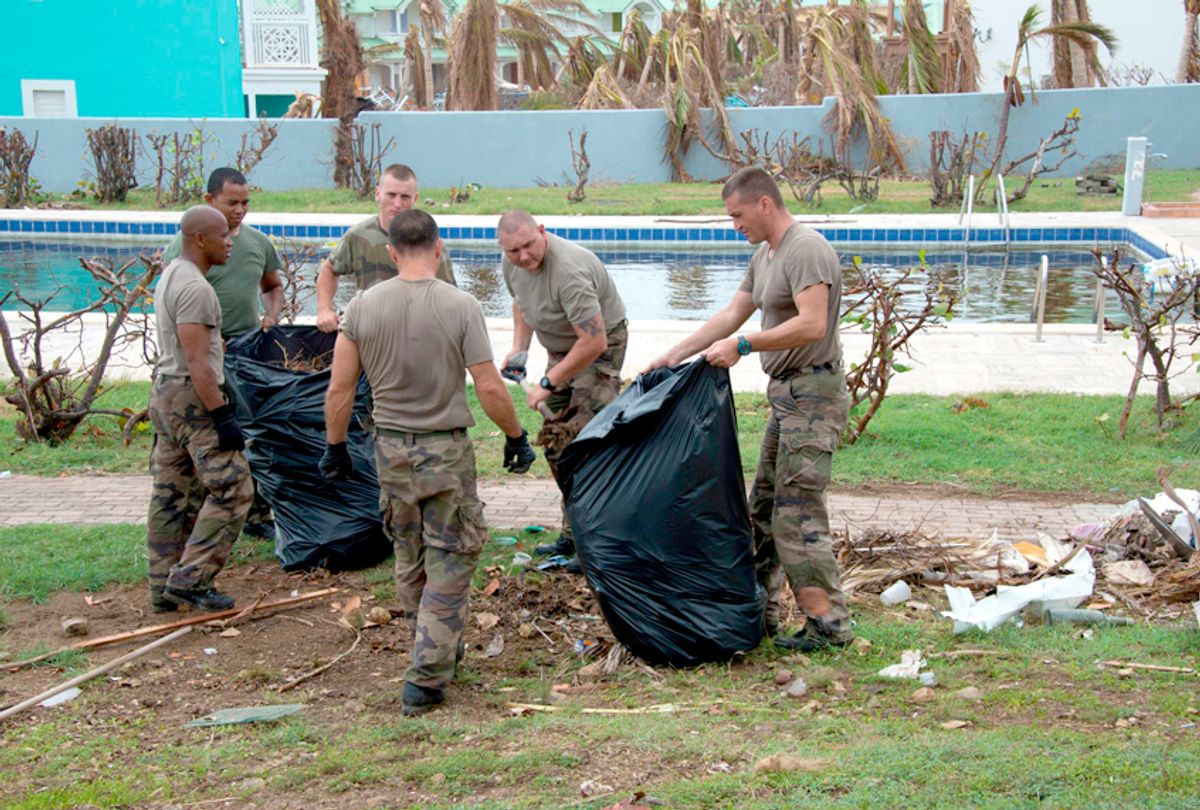In response to the latest disasters at home and abroad, individuals’ wonderful desire to help has resulted in heroic actions and large-scale fund-raising to assist the victims. At the same time, we have heard warnings from disaster experts who hope we will avoid the mistakes of disaster efforts past. Among the most egregious of these errors is the donation of materials that are not only not needed but actually cause harm by interfering with serious relief efforts.
I have heard many of these stories as I researched the burgeoning field of global volunteering for my book "Hoping to Help": The shipping of winter coats and high-heeled shoes to Haiti following the earthquake. The donation of bowling balls and pins to a community on the Mississippi coast following Katrina. You might be thinking: Seriously? How could anyone think these are needed?
In their desire to be helpful, some people send whatever they think might be needed, or perhaps whatever they need to get rid of, without asking anyone if winter coats are appropriate for tropical Haiti. Even more logical gifts, such as medical equipment, may be totally out of place, such as the case of a small community hospital in Mississippi that received a truckload of equipment for a neonatal intensive care unit, a unit which it did not have and could not staff.
These donations are not only a waste of money, but they take up the time and energy of recipient communities. In the case of Haiti and other communities where disasters have occurred, unneeded products have piled up in airports and warehouses and made it harder for real relief to get in and be used.
Doing harm while wanting to do good is not restricted to disasters, though it may be more obvious at those times. The world of humanitarian aid and volunteer efforts has produced hundreds of reports of wasted and misguided efforts: “equipment graveyards” at hospitals in poor countries that cannot use or maintain what they have been sent; food donations undermining local farmers’ livelihood; the shipping to poor communities of medications that have either expired or will be used once with no follow-up; the massive influx of volunteers with no skills who sometimes assume they can tell host communities how to run their affairs; untrained students doing surgical procedures; orphanages using children to profit by visitor donations.
These cautionary tales are leading many observers to criticize the whole enterprise of humanitarian assistance and volunteer activities. My research on short-term international volunteering in health programs shows an immense growth in these activities but little incentive to adhere to commonly agreed upon guidelines for best practices.
These guidelines, written by many different organizations, generally agree on several basic principles, principles that are too often ignored by programs that send volunteers.
First, volunteer efforts must be coordinated with and directed by host community partner organizations that identify the actual needs. My survey of U.S.-based organizations that sponsor short-term volunteer missions revealed that almost half do not always have a host country partner. They define the needs according to what they can offer or what they think is important — back to bowling balls in Mississippi.
Second, volunteers need much better preparation in the language and history of the country they will visit, as well as in “cultural humility.” While volunteers are usually appreciated by host community staff, they do not like the ones who think they have all the answers and do not show respect for their hosts’ experience and expertise. Critiques of the “white savior complex” derive from such experiences.
Third, programs should have continuity and build capacity rather than be “once and done” visits. This is bad quality medical care and can compete with or undermine existing services.
Fourth, volunteers must respect local regulations as well as ethical and legal standards from their home countries. As leaders in this field remind them, “If you can’t do it here, you must not do it there.” Practicing on poor people is unethical and can cause unintended harm.
Fifth, program outcomes should be regularly evaluated. Don’t assume you’ve contributed to improving health without proper evidence.
Just as donors in times of disaster may be tempted to clear their closets of unwanted clutter to send “help” to needy communities, humanitarian organizations and volunteers are often tempted to carry out activities which meet their own needs — for prestige, money, career-building and feeling good — more than those of their hosts. Most people see these efforts as helpful and praise-worthy. They can be, but only if they are designed to focus on what host communities need and then match their own capacity to meet those needs.



Shares